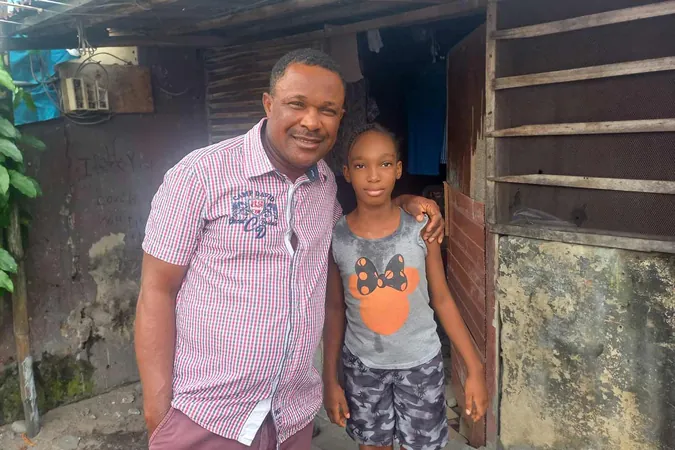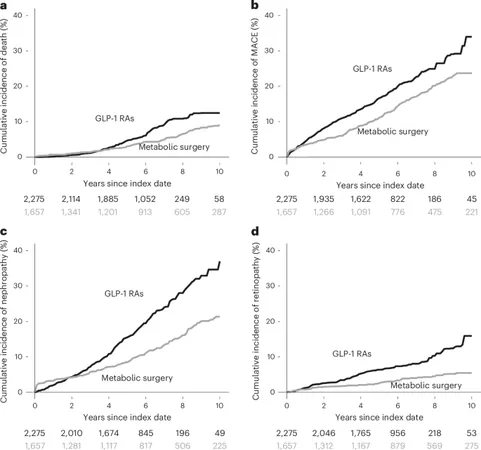
Lagos Triumphs Over Misinformation to Shield Girls from Cervical Cancer
2025-09-12
Author: Nur
Lagos Makes Strides Against Misinformation
In a heartening turn of events, Praise Oladapo and her dedicated health team experienced a warm reception during their recent visit to communities in Eti-Osa Local Government Area, Lagos, to provide human papillomavirus (HPV) vaccinations for eligible girls. This stands in sharp contrast to the initial backlash they faced, marked by community distrust fueled by rampant online misinformation.
“When we first rolled out the vaccine, there was considerable pushback due to rumors spread by skeptics on social media. In some places, health workers were even chased away. We countered these falsehoods with facts,” recounted Oladapo, an immunization officer at Igbo Efon Primary Health Centre.
Turning the Tide on Vaccine Hesitancy
Fast forward several months, and Oladapo’s team has managed to win over many skeptics. During their latest outreach, they vaccinated over 100 girls, nearly double their previous numbers—an impressive feat indeed. Unlike before, parents are now proudly walking their daughters in for the critical vaccine.
Cervical Cancer: An Urgent Health Threat
Cervical cancer is the fourth most prevalent cancer among women worldwide, with over 95% of cases directly linked to HPV. In Nigeria alone, around 12,000 women are diagnosed each year, positioning this disease as the second most common cancer affecting women and a leading cause of cancer-related deaths.
However, good news is on the horizon: Nigeria has recently reported a remarkable 71% coverage rate for HPV vaccinations, successfully protecting 12 million girls aged 9 to 14.
Lagos' Ambitious Goals
As one of the first states to initiate Phase One of the HPV vaccination in October 2023, Lagos aims to vaccinate 1 million girls aged 9 to 10 by the end of 2024. Despite initial hesitation due to misinformation, Dr. Ibrahim Akinwunmi Mustafa, Permanent Secretary of the Lagos State Primary Health Care Board, asserts that the uptake has been encouraging but still has room for improvement.
“We targeted 1 million girls, and as of 2024, we’ve reached about 700,000—70% of our goal. Our strategy involves advocacy, community interactions, and continuous education to dispel myths around the vaccine,” Mustafa emphasized.
Community Engagement: A Key to Success
Lagos, the smallest state by area but the largest in population—housing 22 million people from diverse ethnic groups—has turned these differences into an advantage. Chief Tajudeen Olukolu, a traditional leader in Eti-Osa, revealed how sensitization sessions among various ethnic groups have significantly boosted vaccination rates.
“By reaching out to ethnic leaders and explaining the importance of vaccination, we were able to communicate effectively with the community,” Olukolu shared.
Parents as Advocates
Encouraging stories from local parents demonstrate the impact of positive experiences with the HPV vaccine. Omowumi Olukosi, a mother from Igbo Efon, recounted how her decision to vaccinate her daughters persuaded neighbors to reconsider their hesitance.
“Once the community saw that my daughters were fine after vaccination, many embraced the idea for their own children,” she shared.
Community Mobilizers Making a Difference
One standout mobilizer, known as "Mama," is making waves in her community. Dorcas Ishola, a respected figure in her neighborhood, took it upon herself to quash misinformation through her influence and activism.
“I’ve been in this community for over 20 years, and I used my experience to encourage families to vaccinate their children. I went door-to-door and organized discussions that highlighted real stories of cervical cancer victimization,” Ishola remarked.
Local educators also joined the campaign, dispelling fears surrounding the vaccine. Esther Uwaeke, founder of Glasyl School, shared how 80% of eligible students at her institution received the vaccination, thanks to her efforts to inform and educate parents.
A Bright Horizon Ahead
The integration of the HPV vaccine into Lagos’ routine immunization program set for January 2025 is expected to further enhance coverage. As the city continues its battle against cervical cancer, it remains committed to providing crucial education and advocating for widespread vaccination, ensuring a healthier future for its young girls.




 Brasil (PT)
Brasil (PT)
 Canada (EN)
Canada (EN)
 Chile (ES)
Chile (ES)
 Česko (CS)
Česko (CS)
 대한민국 (KO)
대한민국 (KO)
 España (ES)
España (ES)
 France (FR)
France (FR)
 Hong Kong (EN)
Hong Kong (EN)
 Italia (IT)
Italia (IT)
 日本 (JA)
日本 (JA)
 Magyarország (HU)
Magyarország (HU)
 Norge (NO)
Norge (NO)
 Polska (PL)
Polska (PL)
 Schweiz (DE)
Schweiz (DE)
 Singapore (EN)
Singapore (EN)
 Sverige (SV)
Sverige (SV)
 Suomi (FI)
Suomi (FI)
 Türkiye (TR)
Türkiye (TR)
 الإمارات العربية المتحدة (AR)
الإمارات العربية المتحدة (AR)